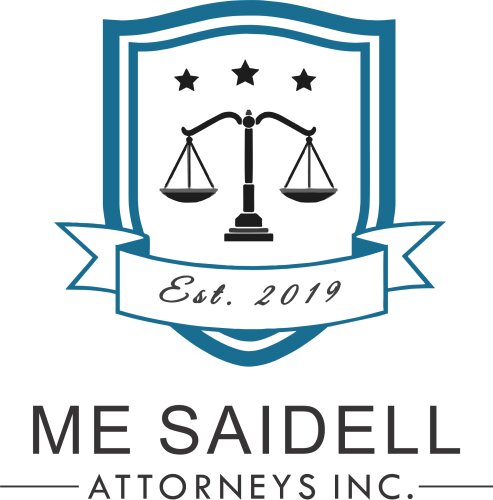Best Debt Capital Markets Lawyers in Johannesburg
Share your needs with us, get contacted by law firms.
Free. Takes 2 min.
List of the best lawyers in Johannesburg, South Africa
About Debt Capital Markets Law in Johannesburg, South Africa
Debt Capital Markets (DCM) refer to the financial markets where entities raise funds by issuing debt instruments such as bonds, notes, and debentures. Johannesburg is the financial hub of South Africa, with the Johannesburg Stock Exchange (JSE) serving as a central platform for listing and trading various debt instruments. Entities such as corporations, municipalities, state-owned enterprises, and financial institutions use the debt capital markets to secure funding for projects, refinancing, or general corporate purposes. The legal framework governing DCM in Johannesburg ensures transparency, investor protection, and market integrity.
Why You May Need a Lawyer
The Debt Capital Markets field involves complex legal, regulatory, and commercial aspects. Individuals or companies may need legal assistance in several situations, including:
- Drafting and reviewing offering documents for bonds and other debt instruments
- Ensuring compliance with regulatory requirements set by the JSE and the Financial Sector Conduct Authority (FSCA)
- Structuring and negotiating the terms of debt issuances, including covenants and security arrangements
- Advising on cross-border securities offerings and related exchange control regulations
- Handling disputes related to debt instruments or investor claims
- Assisting in due diligence and disclosure obligations during debt offerings
- Helping with listings, de-listings, and ongoing reporting obligations
- Advising on the impact of changing laws and market conditions on existing or planned issues
Local Laws Overview
The Debt Capital Markets in Johannesburg operate under several layers of regulation. Key legal elements include:
- The Companies Act 71 of 2008, which governs corporate entities and their ability to issue debt
- The Financial Markets Act 19 of 2012, which regulates market infrastructure and trading of securities, including bonds
- The JSE Debt Listings Requirements, which provide specific rules for the issuance and listing of debt securities
- The Collective Investment Schemes Control Act, relevant for pooled investment vehicles issuing or investing in debt instruments
- The Exchange Control Regulations that may require approvals for cross-border debt issues
- Tax legislation affecting the structuring, return, and reporting of debt securities
Regulatory supervision is provided by the Financial Sector Conduct Authority, the South African Reserve Bank (Exchange Control Department), and the JSE. Compliance with these frameworks is essential to conducting debt capital market activities lawfully in Johannesburg.
Frequently Asked Questions
What is a debt instrument?
A debt instrument is a financial contract such as a bond or debenture that obligates the issuer to repay borrowed funds to the holder with interest, under specified terms.
Who can issue debt securities in Johannesburg?
Corporates, banks, government bodies, municipalities, and state-owned entities can issue debt securities, subject to legal and regulatory requirements.
What is the role of the JSE in the Debt Capital Markets?
The JSE provides the infrastructure for listing and trading debt securities, sets listing requirements, and facilitates investor protection and transparency in the market.
What documents are required to issue debt on the JSE?
Key documents include a programme memorandum, applicable pricing supplements, audited financial statements, and legal opinions. Compliance with JSE Debt Listings Requirements is mandatory.
How are investors protected in South Africa’s Debt Capital Markets?
Investor protection is achieved through disclosure requirements, regulatory oversight, stringent listing rules, and mechanisms for resolving investor disputes.
Are there currency restrictions on issuing debt?
Yes, cross-border issuance or foreign currency-denominated debt requires compliance with Exchange Control Regulations enforced by the South African Reserve Bank.
What is the process for listing a debt security?
The process involves preparing offering documents, complying with disclosure and regulatory requirements, obtaining approvals from the JSE, and meeting ongoing reporting and governance criteria.
Can foreign entities participate in Johannesburg’s Debt Capital Markets?
Yes, foreign entities can issue or invest in debt securities, but must observe exchange control requirements and may face additional regulatory considerations.
What are some common risks associated with Debt Capital Markets?
Risks include credit risk (issuer default), interest rate fluctuations, liquidity risk, regulatory risk, and operational risk related to settling securities.
Why is legal due diligence important in Debt Capital Markets?
Legal due diligence identifies legal risks, ensures regulatory compliance, and supports the accuracy of disclosures, thereby protecting both issuers and investors.
Additional Resources
If you need more information or assistance, consider consulting the following organizations and resources:
- Financial Sector Conduct Authority (FSCA)
- Johannesburg Stock Exchange (JSE) Debt Listings Department
- South African Reserve Bank (Exchange Control Department)
- National Treasury of South Africa
- South African Institute of Chartered Accountants (for accounting guidelines)
- Law Society of South Africa (for lawyer referrals)
Next Steps
If you are considering involvement in the Debt Capital Markets in Johannesburg, here is how to proceed:
- Define your objectives and the nature of your transaction or investment
- Gather relevant financial and business documentation
- Consult a specialist debt capital markets lawyer for guidance on legal structuring, compliance, and documentation
- Ensure you understand all regulatory requirements before proceeding
- Work closely with your lawyer throughout the process to anticipate and manage any legal risks or issues
Engaging a qualified legal practitioner with experience in Johannesburg’s Debt Capital Markets is essential for smooth and compliant transactions.
Lawzana helps you find the best lawyers and law firms in Johannesburg through a curated and pre-screened list of qualified legal professionals. Our platform offers rankings and detailed profiles of attorneys and law firms, allowing you to compare based on practice areas, including Debt Capital Markets, experience, and client feedback.
Each profile includes a description of the firm's areas of practice, client reviews, team members and partners, year of establishment, spoken languages, office locations, contact information, social media presence, and any published articles or resources. Most firms on our platform speak English and are experienced in both local and international legal matters.
Get a quote from top-rated law firms in Johannesburg, South Africa — quickly, securely, and without unnecessary hassle.
Disclaimer:
The information provided on this page is for general informational purposes only and does not constitute legal advice. While we strive to ensure the accuracy and relevance of the content, legal information may change over time, and interpretations of the law can vary. You should always consult with a qualified legal professional for advice specific to your situation.
We disclaim all liability for actions taken or not taken based on the content of this page. If you believe any information is incorrect or outdated, please contact us, and we will review and update it where appropriate.
















